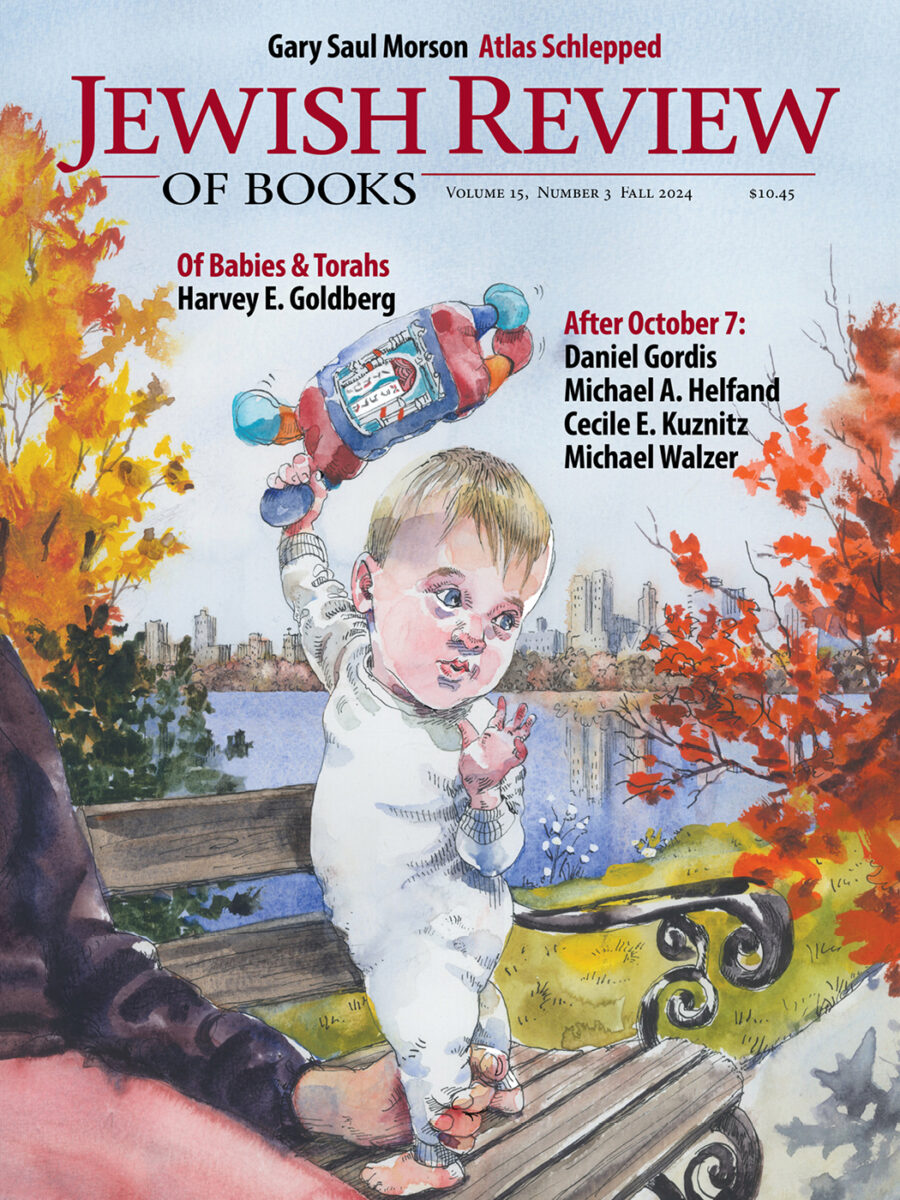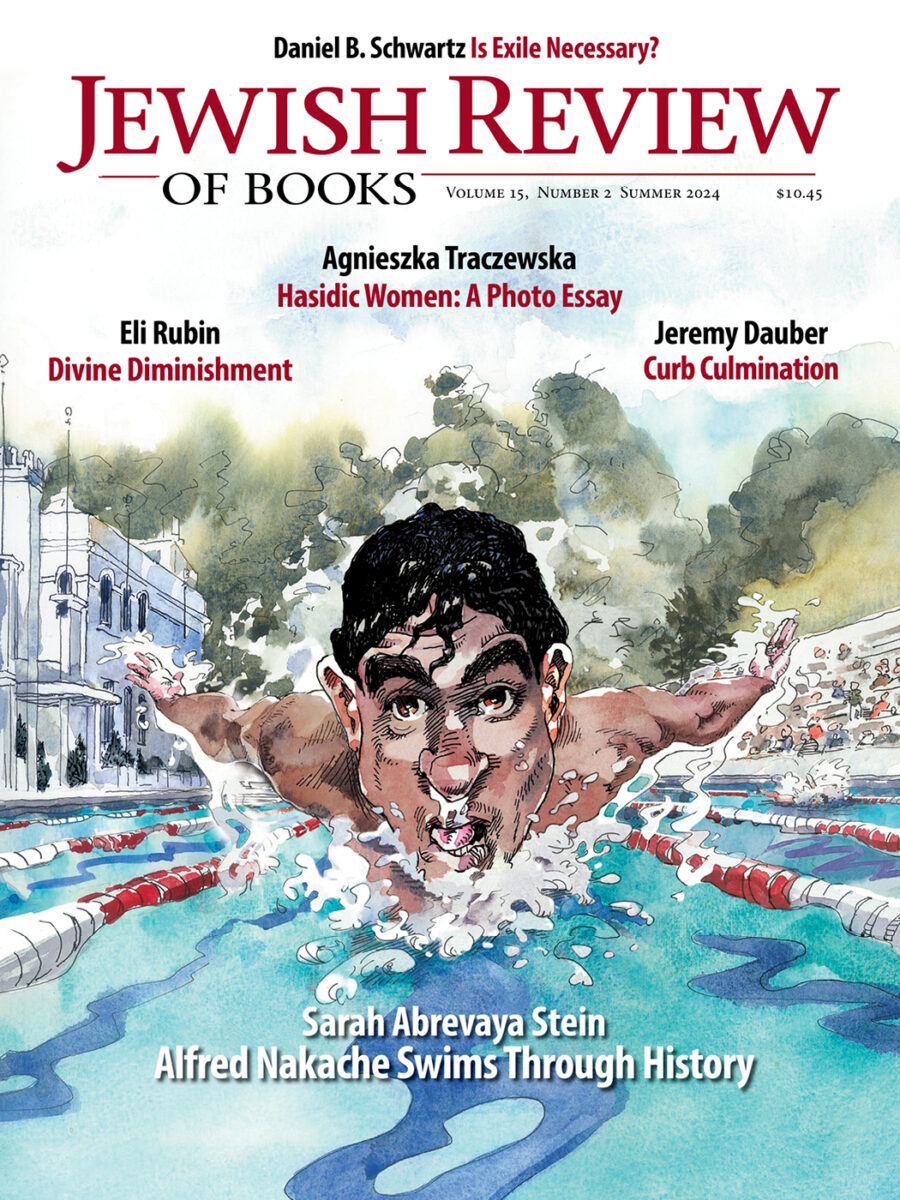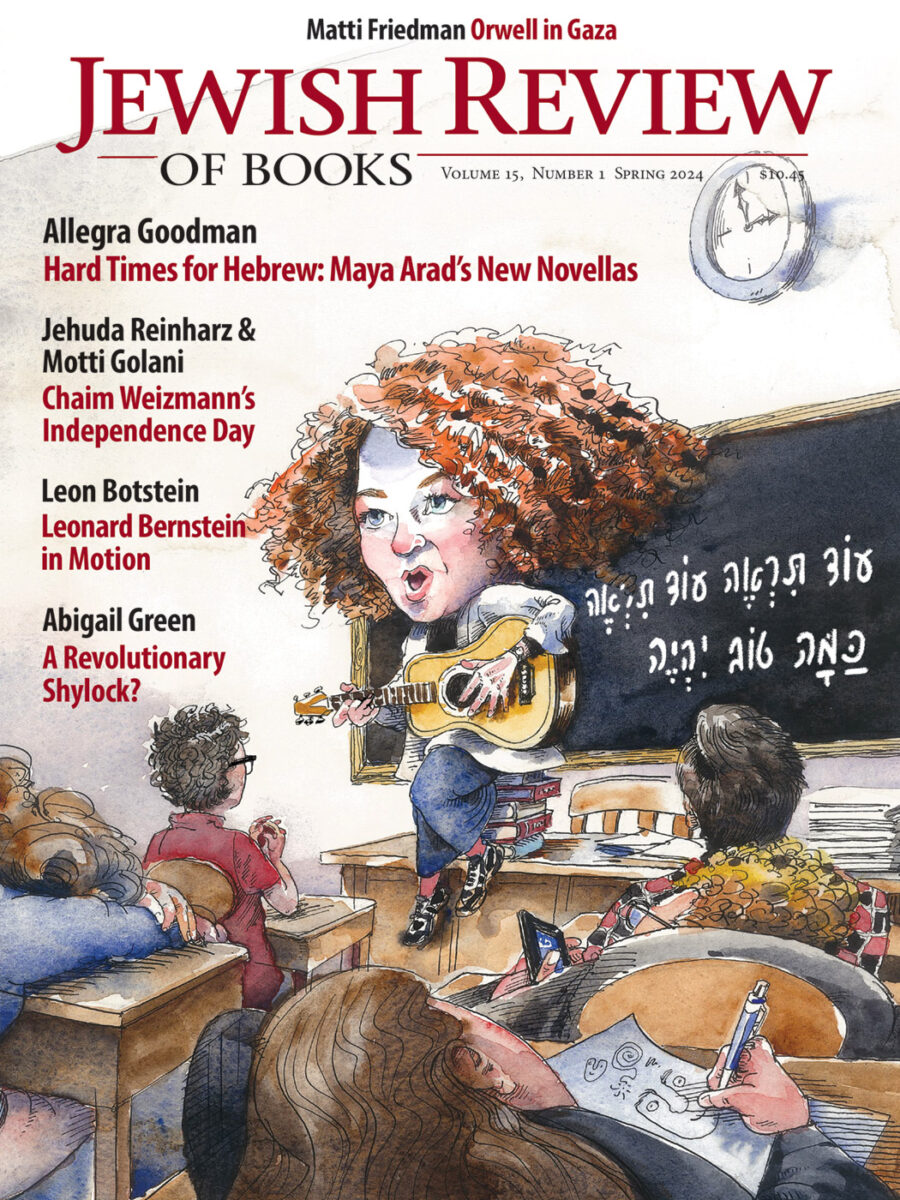Letters
Letters, Fall 2016
Frozen DNA, Brandeis's Puritan Sabbaths, Free the Rapoport Mermaids
Features
Cynthia Ozick: Or, Immortality
Ozick is as marvelously demanding, harrumphing, and uncompromising as she has always been.
Reviews
There He Goes Again
Foer departs from Roth’s model in many ways; perhaps most unsettling is the fact that he confuses crassness for humor.
From Moses to Moses to Sholem Aleichem
Anyone looking for a single-volume introduction to Jewish civilization for a class full of highly educated professionals with only a limited knowledge of the subject will find nothing better in print.
Jewish Pugs
A successful Jewish jock, demonstrating strength and physical courage, nicely rounds out Jews’ sense of completeness as human beings.
Harlem on His Mind
Many Harlem churches that were once synagogues have been torn down to make way for apartment buildings with all the latest amenities.
Jerusalem Reconstructed
The Mendelsohns' converted flour mill on the outskirts of Rehavia became a cultural salon, with concerts and poetry readings.
The Angel and the Covenant
Hurwitz’s ideal Jew is the rabbinic scholar who is also knowledgeable about, and open to, modern science.
A Cedar of Lebanon
In addition to the weight survivors feel, Friedman bears the burden of giving voice to the place that shaped young men’s lives and took others, while leaving no official trace.
Psychology at Nuremberg
Both Kelley and Gilbert believed they could make a broad psychosocial argument despite the limited sample size, inconclusive tests, infighting, and lack of clear standards and definitions.
If This Is a Man
Primo Levi often claimed that he was first and foremost a chemist and not a professional writer, but anyone who reads him with care will be moved by the sober lucidity, subtlety, concision, and analytical power of his prose.
Readings
A Tale of Two Night Vigils
The tradition to stay up all night studying on Shavuot is far more well-known than the tradition to do so on Hoshana Rabbah. Neither would have been possible without Kabbalah and caffeine.
Zion and Party Politics, 1944
In the summer of 1944 support for Zionism was transformed from a low-risk political gesture to a bona fide election issue. FDR was not pleased.
The Arts
Inventing American Judaism
Unlike the Jews of Venice, whose charter was anxiously renegotiated every decade or so, American Jews participated in civic life, confidently building themselves a future.
Denial and the Defense of Truth
Denial is more than a slick courtroom drama about Holocaust denial; it is also a defense of objective truth against nihilistic relativism, a call to arms by the establishment against self-proclaimed outsiders who deny all sorts of truths.
Exchange
Religion, Power, and Politics: An Exchange
Rabbi Riskin's review of Rabbi Sack's latest book ignited a discussion on the role of power in Judaism.
Religion and Politics: A Response to Shlomo Riskin
Judaism never advocated powerlessness, but it did protest attributing religious significance to power.
Necessary Power: A Rejoinder to Jonathan Sacks
When Rabbi Sacks writes, “It is not our task” (and it was not Abraham’s task) “to conquer or convert the world or to enforce uniformity of belief. It is our task to be a blessing to the world. The use of religion for political ends is not righteousness but idolatry,” it seems to me that he oversimplifies matters.
Last Word
Marmorshers!
I left the conversation with the entirely erroneous, in fact libelous, impression that “Marmorsher” was Yiddish slang for horse thief.
Past Issues

Issue No. 59
Fall 2024

Issue No. 58
Summer 2024

Issue No. 57
Spring 2024

Issue No. 56